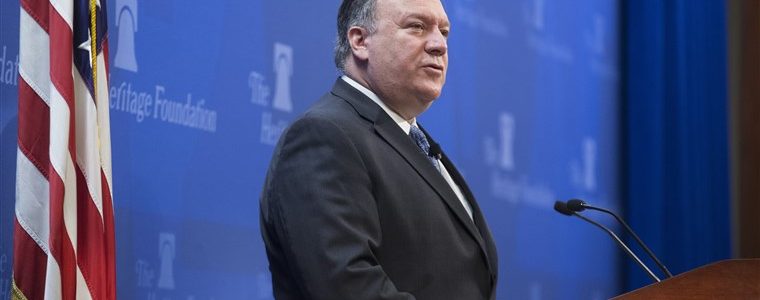
In the November/December issue of Foreign Affairs, U.S. Secretary of State Mike Pompeo outlines President Donald Trump’s strategy for “confronting Iran.” Pompeo describes an Iranian regime hell-bent on dominating the Middle East, and he argues that Trump is determined to overturn the supposed inclination of past U.S. administrations—especially the Obama administration—to accommodate the mullahs in Tehran.
In particular, Pompeo reiterates the Trump administration’s critique that the 2015 Iran nuclear deal negotiated between the Obama administration, other members of the so-called P5+1 (China, France, Germany, Russia, and the United Kingdom), and Iran failed to permanently prevent the Islamic Republic from pursuing nuclear weapons. Pompeo also asserts that the loosening of U.S. sanctions under the deal enriched and enabled the Iranian regime—and the Islamic Revolutionary Guard Corps (IRGC) in particular—to more aggressively pursue its destabilizing agenda in Afghanistan, Gaza, Iraq, Lebanon, Syria, Yemen, and elsewhere. In contrast, Pompeo contends that Trump’s policy of “maximum pressure”—including the U.S. withdrawal from the nuclear agreement in May, the re-imposition of economic sanctions, credible military threats, and efforts to expose the regime’s corruption and human rights abuses—will reverse all this, producing a better nuclear deal, isolating Iran, and rolling back Iran’s nefarious activities across the Middle East.

